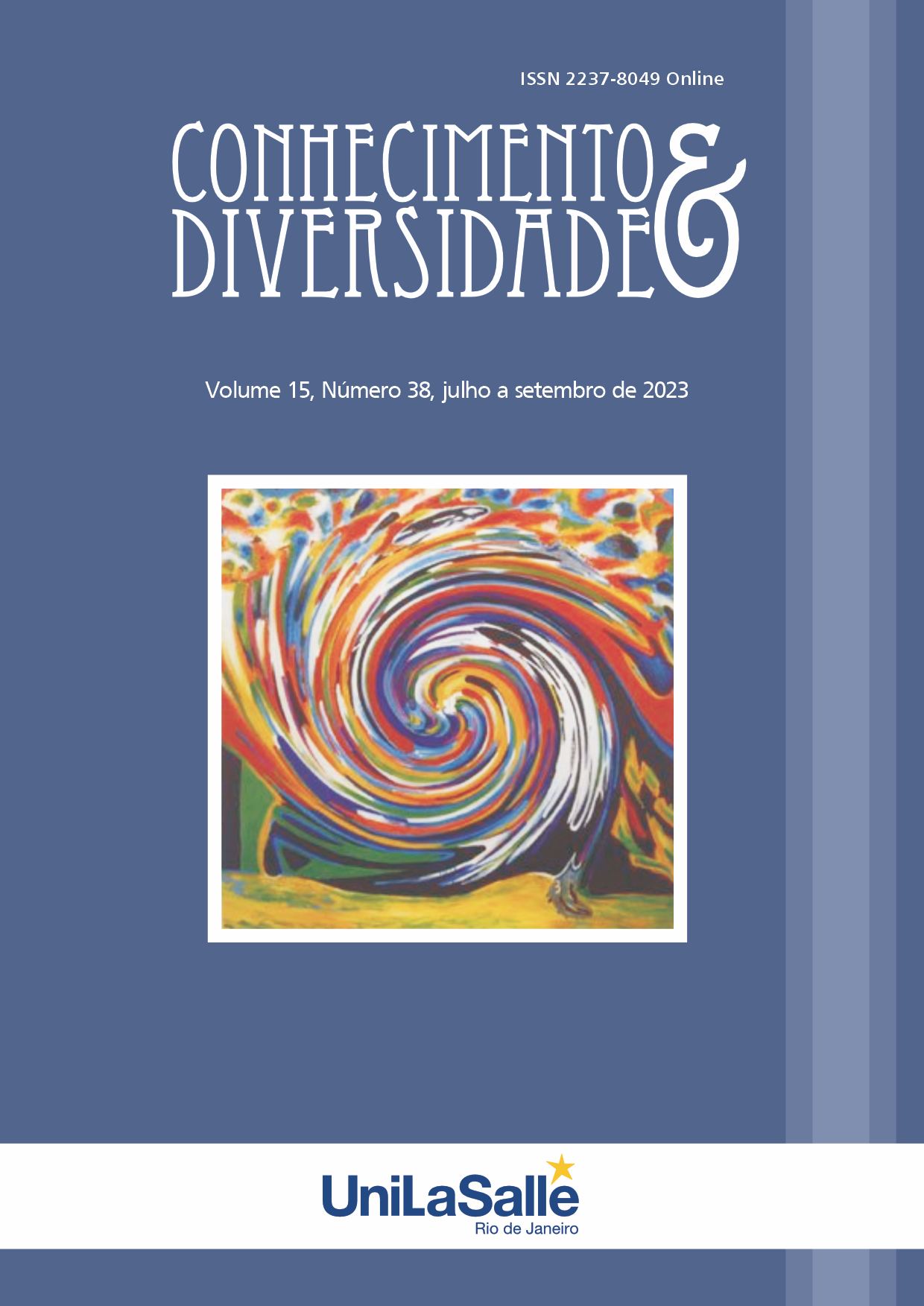VALIDATION OF A STRATEGY FOR STIMULATING SITUATIONAL INTEREST TO WORK ON INTERCULTURALITY IN PLURICULTURAL CONTEXTS
DOI:
https://doi.org/10.18316/rcd.v15i38.11038Keywords:
Situational interest, Interculturality, Multiculturalism, Musical EducationAbstract
INTRODUCTION. The characteristics of an activity can encourage students to integrate significantly into a social group, so it can be considered an element that stimulates situational interest. Given this, music can become a powerful tool to face educational challenges in multicultural societies and a potential activator of the situational interest of these students. METHOD. Based on this, the "World Music Workshop" was designed as a strategy to stimulate the situational interest of Secondary school students to work on interculturality in multicultural educational environments. In order to carry out this process, a validation was carried out by expert judgment with the method of individual aggregates. Seven teachers (five university professors and two from Secondary school) evaluated the phases and instruments of the strategy. RESULTS AND DISCUSSION. Based on their considerations, modifications were made to the diagnosis and evaluation instruments and new resources were incorporated into the Workshop proposal.
References
AKOSCHKY, J. Los “cotidiáfonos” en la educación infantil. Revista Eufonía, Barcelona, n. 33, p. 20-30, 2005. Disponible en: https://dialnet.unirioja.es/servlet/articulo?codigo=1075562
ANDER-EGG, E. El taller, una alternativa para la renovación pedagógica (2nd ed.). Buenos Aires: Magisterio del Río de la Plata, 1991.
BERNABÉ, M. Pluriculturalidad, multiculturalidad e interculturalidad, conocimientos necesarios para la labor docente. Revista Educativa Hekademos, Sevilla, v. 11, n. V, p. 67-76, 2012. Disponible en: https://dialnet.unirioja.es/servlet/articulo?codigo=4059798
CAMPBELL, P. Sh. Teaching Music Globally: experiencing music, expressing culture. Oxford: Oxford University Press, 2004.
CAMPBELL, P. Sh.; LUM, C. H. World Music Pedagogy, Volume VI: School-Community Intersections. Londres: Routledge, 2019.
FIGUEROA, F. Motivación para el aprendizaje de la música en educación primaria mediante la construcción de instrumentos musicales. Bilbao: Universidad del País Vasco, 2015. Disponible en: https://addi.ehu.es/bitstream/handle/
GARCÍA, S. El uso del sociograma para determinar las relaciones existentes en un aula de 4to de la ESO. La Rioja: Universidad Internacional de La Rioja, 2013. Disponible en: https://reunir.unir.net/bitstream/handle/123456789/1468/
HOWARD, K.; KELLEY, J. World Music Pedagogy, Volume III: Secondary School Innovations: 3 (Edición de Kindle). Londres: Routledge. Taylor and Francis, 2018.
JEFATURA DEL ESTADO. Ley Orgánica 3/2020, de 29 de diciembre, por la que se modifica la Ley Orgánica 2/2006, de 3 de mayo, de Educación. BOE (30/12/2020), núm.340, referencia 17264, pp.122868-122953, 2020.
KRAPP, A. Basic needs and the development of interest and intrinsic motivational orientations. Learning and Instruction, Trondheim, v. 15, n. 5, p. 381-395, 2005. https://doi.org/10.1016/j.learninstruc.2005.07.007
MARTÍNEZ-HIERREZUELO, Y. (2021). El taller de Lenguaje Musical: una estructura didáctica para estimular el interés situacional en las Escuelas de Música. Madrid: Universidad Complutense de Madrid.
MICHALUS, J. C.; SARACHE, W. A.; HERNÁNDEZ, G. Método de expertos para la evaluación ex-ante de una solución organizativa. Visión de Futuro, Misiones, v. 12, n. 19, p. 1-17. Disponible en: http://www.scielo.org.ar/scielo.php
MINISTERIO DE EDUCACIÓN Y FORMACIÓN PROFESIONAL. Real Decreto 217/2022, de 29 de marzo, por el que se establece la ordenación y las enseñanzas mínimas de la Educación Secundaria Obligatoria. BOE (30/03/2022), núm.76, referencia 4975, pp.41571-41789, 2022.
RENNINGER, K. A.; HIDI, S. Revisiting the conceptualization, measurement, and generation of interest. Educational Psychologist, Chapel Hill, v. 46, n. 3, p. 168-184, 2011. https://doi.org/10.1080/00461520.2011.587723
ROMERO, R. El sociograma. Innovación y Experiencias Educativas, Madrid, n. 35, 2010. Disponible en: https://archivos.csif.es/archivos/andalucia
ROTGANS, J. I.; SCHMIDT, H. G. The role of interest in learning: Knowledge acquisition at the intersection of situational and individual interest. In P. O’KEEFE; J. M. HARACKIEWICZ (Eds.), The science of interest. Berlín: Springer, 2017. p. 69-93.
SOMETICS (2022). Haga Un Sociograma Con Sometics En Un Abrir y Cerrar de Ojos. Disponible en: https://www.sometics.com/es/sociograma
VIVAS, L. (2019, diciembre). ¿Cómo afecta la Multiculturalidad en las Educación Española: informe TALIS? Revista-Noticias, California. Disponible en: https://www.unir.net/
WIGGINS, J. (2001). Teaching for Musical Understanding (1st ed.). Columbia: Mc Graw-Hill Higher Education.
Downloads
Published
Issue
Section
License
Copyright (c) 2023 Yailin Martínez-Hierrezuelo, María del Mar Bernabé Villodre

This work is licensed under a Creative Commons Attribution 4.0 International License.
As recommended by the Public Knowledge Project, RCD adopts for its articles a CREATIVE COMMONS Attribution CC BY 4.0 license.
This license allows others to distribute, remix, adapt and build upon your work, even commercially, as long as they credit you for the original creation.
This is the most appropriate license offered.
Recommended for maximum dissemination and use of licensed materials.



